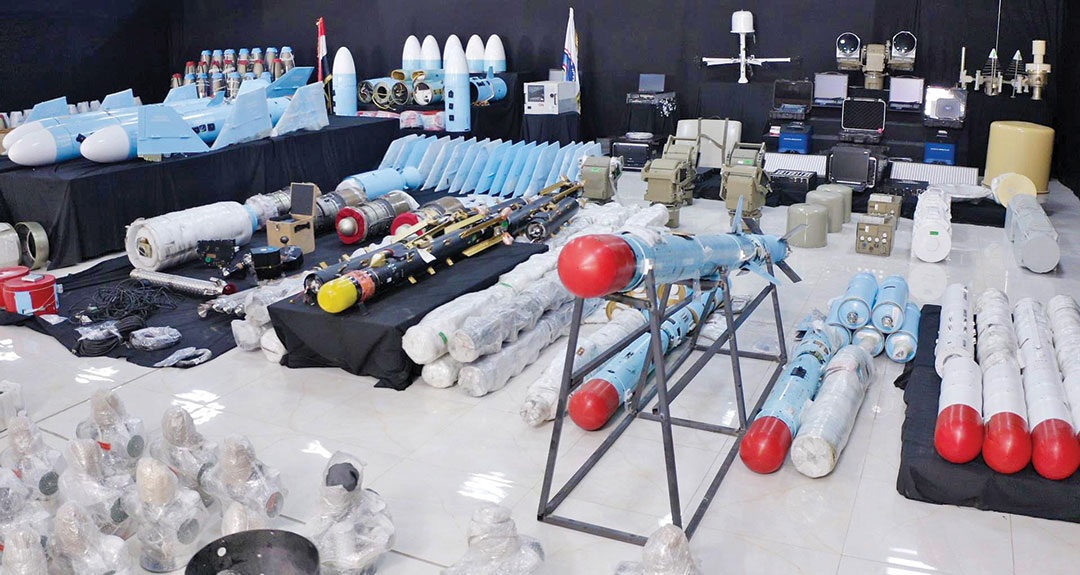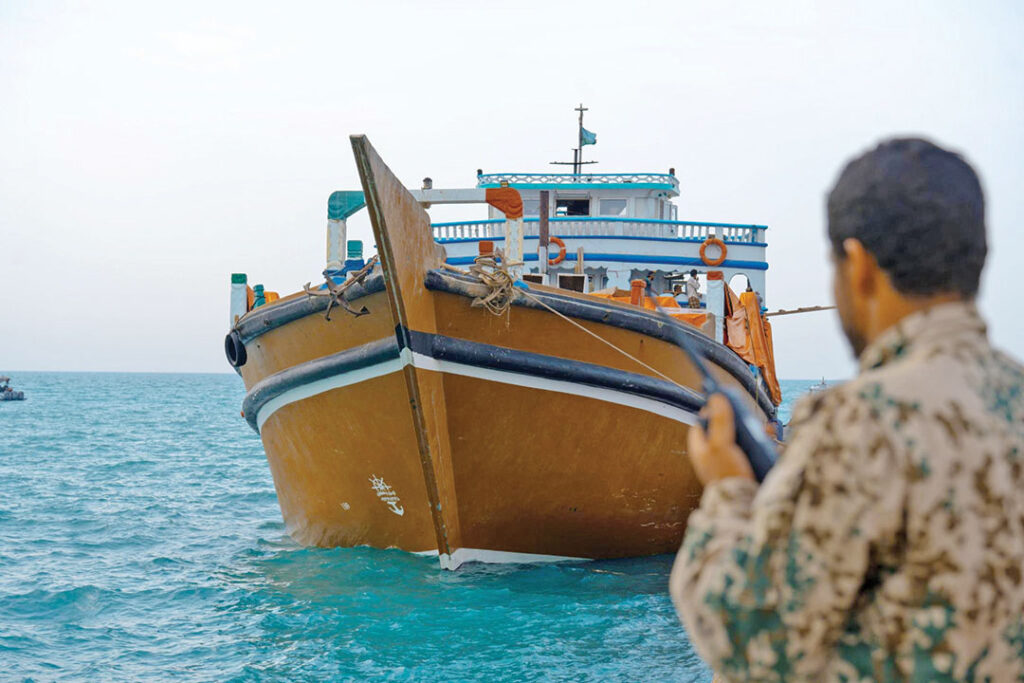In a world where asymmetric threats evolve faster than conventional responses, effective intelligence gathering is no longer the exclusive domain of satellites, cyber assets or even elite military units. Increasingly, it is the alert citizen — the person on the street, in the market or along a smuggling corridor — who becomes the key to stopping the next attack.
Recognizing this, the U.S. Department of War has long employed a powerful tool: the DoW Rewards Program (DoWRP). This initiative offers money to people who provide timely, credible information that helps protect U.S. and allied forces or disrupts threats to regional stability.
For nations within the U.S. Central Command’s (CENTCOM) area of responsibility (AOR) — spanning the Middle East, Central and South Asia, and the Horn of Africa — the opportunity to adopt or partner with this proven program could be transformational.
Advantages of the program
The DoWRP is one of the most quietly effective force protection and counterterrorism initiatives in the U.S. security tool kit. Through it, foreign nationals can earn significant financial rewards — sometimes up to $5 million — for information that leads to the disruption of terrorist activities, seizure of weapons, thwarting of drone attacks or the identification of imminent threats.
This is not a theoretical capability. It is a field-tested system, managed directly by U.S. combatant commands, with a track record of real-world success. Since its inception, the program has paid out more than $26 million to hundreds of tipsters, many in countries within the CENTCOM region. These accomplishments aren’t just statistics; they represent terrorist plots dismantled, weapons caches uncovered and lives saved.
The website DoWRewardsProgram.net is the official portal for information, multilingual submission and outreach. It reflects the program’s modern, secure and civilian-friendly
approach to intelligence gathering.

How and why it works
The genius of the program lies in its simplicity and flexibility. Civilians — often unaffiliated with any government or military force — can submit information through encrypted channels, including web portals, WhatsApp, Telegram and secure phone lines. Languages such as Arabic, Farsi, Urdu and Pashto are supported to ensure accessibility.
Once submitted, tips are evaluated by dedicated analysts who assess their credibility, uniqueness and operational value. If the information proves accurate and actionable, the provider is discreetly contacted and compensated. Payments can be financial or in-kind, depending on the situation and safety considerations. At every stage, the program prioritizes informant anonymity and integrity, ensuring that no one is put at unnecessary risk.
The speed and discretion with which the program operates is a significant advantage. It bypasses bureaucratic slowdowns, allowing combatant commanders in the field to make reward decisions in real time — sometimes within days of receiving a valuable tip.
Building a culture of cooperation
For governments across the CENTCOM region, the implications of a program like this go far beyond transactional intelligence gathering. The DoWRP fosters a culture of civic responsibility. When civilians see that their vigilance can make a difference, and that they will be treated fairly and safely, they are more likely to step forward.
In many places, especially where trust in formal institutions may be strained, the DoWRP bridges the gap between ordinary people and the forces working to keep them safe. It builds public confidence. It empowers local populations. It turns would-be bystanders into active participants in national security.
Importantly, the rewards program operates in full alignment with U.S. and international law. It is governed and overseen by the Department of War through strict audit trails and compliance frameworks. This ensures accountability without sacrificing responsiveness.
A regional example: NAVCENT’s Maritime Success
A compelling example of the program’s effectiveness can be seen through U.S. Naval Forces Central Command (NAVCENT). In response to growing maritime threats in the Red Sea and Arabian Gulf — particularly related to smuggling and maritime-based terrorist activity — NAVCENT created a regionally focused extension of the DoWRP.
This version specifically targets information related to illicit maritime activity, offering rewards for tips about weapons, drugs, explosives or people being trafficked by sea. It accepts tips in Arabic, Farsi and English, using common and secure communication tools. Within months of launch, the NAVCENT adaptation had already led to seizures of illicit narcotics and the disruption of smuggling routes used by hostile actors.
This kind of tailored application demonstrates how adaptable the program can be. It also highlights an exciting possibility: partner nations in the region could launch reward programs based on the same model, customized to their national priorities and operational realities.
Benefits of adopting such a program
For CENTCOM-aligned nations, the benefits of partnering with the U.S. DoWRP — or creating a local version of it — are compelling.
First, it offers a nonlethal, scalable approach to improving domestic intelligence gathering. Without the need for large infrastructure or invasive surveillance, governments can use the eyes and ears of their own populations.
Second, it helps counter emerging threats in gray zones, places where traditional military or police methods fall short. Whether tracking rogue drone launches, identifying foreign fighters, or monitoring smuggling routes across deserts and seas, rewards-based intelligence is a valuable tool.
Third, such programs build trust. When civilians see that information leads to action, and that justice can be served through cooperation rather than confrontation, it strengthens national unity and deters malign actors.
Fourth, a national reward program serves as a symbol of sovereignty and operational maturity. While the U.S. model is proven, there’s nothing preventing CENTCOM-friendly countries from establishing their own versions. Bilateral cooperation with the U.S. on joint rewards, legal safeguards, or technical platforms is feasible and encouraged.
Looking ahead
So how might a CENTCOM partner proceed?
The first step is straightforward: open discussions with U.S. counterparts about integrating a rewards framework into ongoing security cooperation efforts. CENTCOM and its component commands can provide support, guidance, and sometimes joint funding or technical platforms.
Next comes tailoring a rewards program to reflect the linguistic, legal and cultural landscape of each nation. Public messaging should highlight that rewards are legal, secure and confidential. Rules should be clearly stated: what kind of information qualifies, what types of behavior are being targeted and how reward decisions are made.
Training and vetting local analysts is also essential. Evaluating intelligence must remain apolitical and professional to maintain credibility. A pilot phase in a region with persistent security issues — those affecting key areas like ports and borders — can help generate early successes and validate the system.
Finally, an expansion phase should be planned in concert with national security strategy. Reward programs are not one-size-fits-all, but they are universally adaptable.
A Call to Action
The DoWRP is more than a funding mechanism; it is a strategic asset. It empowers populations, prevents violence and builds intelligence capacity in some of the world’s most challenging environments. For partner nations in the CENTCOM AOR, adopting this model — either through direct cooperation or independent adaptation — represents a clear and immediate opportunity.
In today’s security landscape, where the next threat could come from a drone, a tunnel or a social media post, timely intelligence is everything. And the people who possess that information — farmers, dockworkers, shopkeepers, fishermen, dhow captains, students — are more willing to share it when they know it will be used wisely and benefit them financially.
The infrastructure exists. The policy is proven. The results are undeniable. For governments ready to elevate their counterterrorism and force protection capabilities, the next step is simple: Ask to join the program — or create your own. To learn more, visit www.DoWRewardsProgram.net and explore how this model can serve your nation’s security interests.

